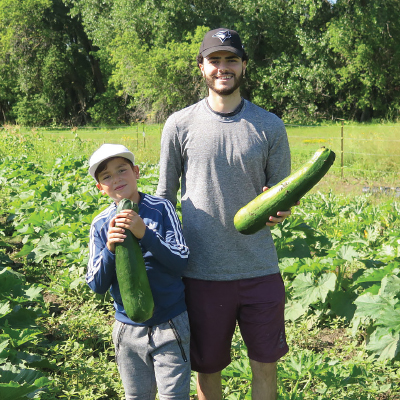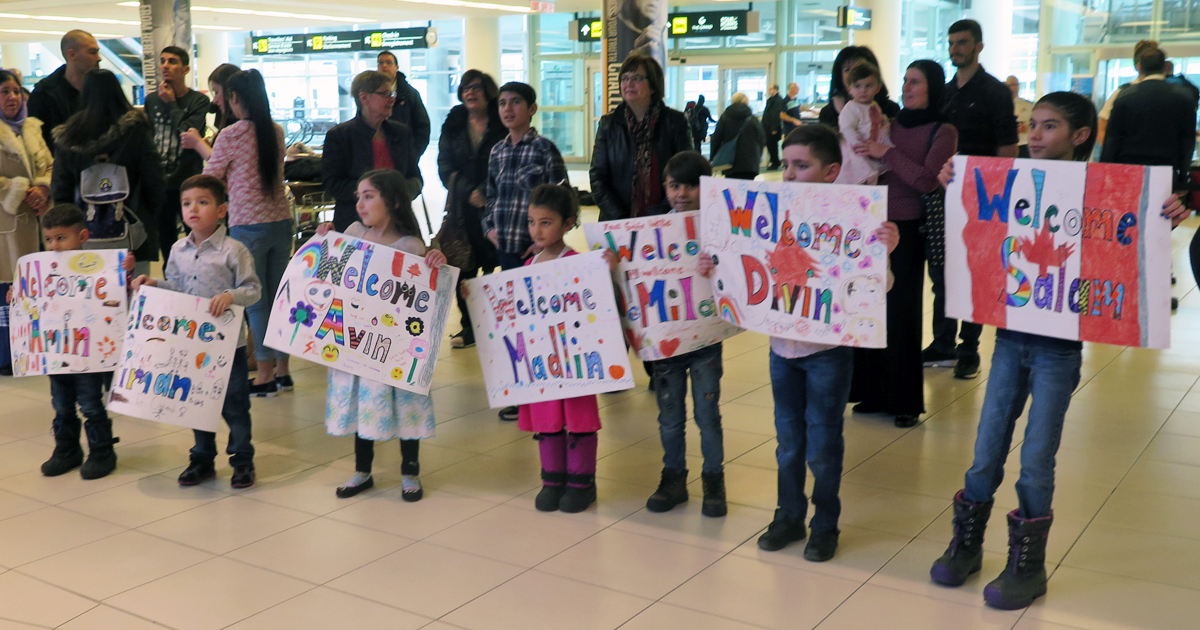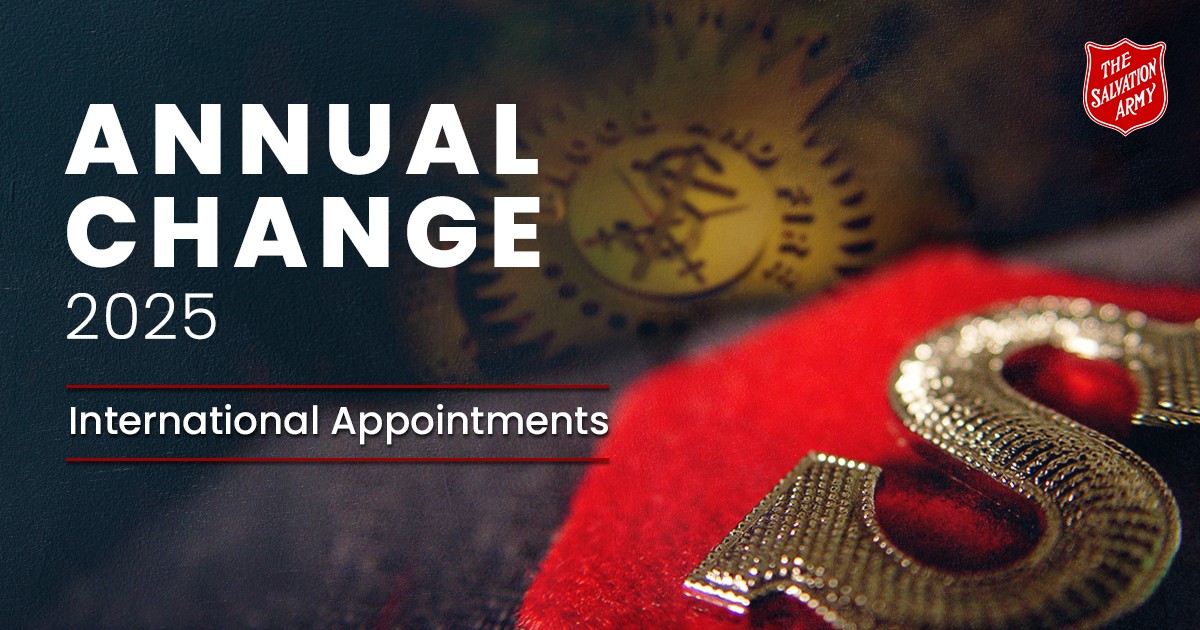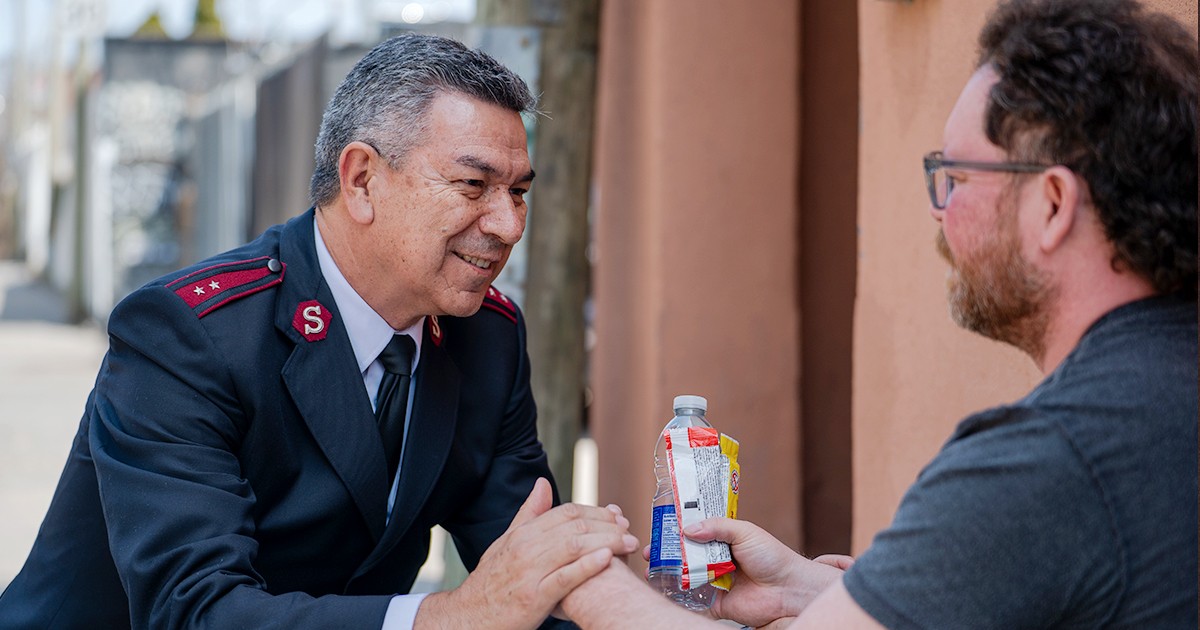In the summer of 2015, I joined a small group of people at Winnipeg’s Richardson International Airport. We were there to welcome a family to Winnipeg. Just weeks before, this family had been living in a refugee camp in Turkey. As they made their way down the stairs, they were greeted with cheers and hugs. They were the first of many families to come over the next few years, as part of the larger Yazidi community. They came through the efforts of a Jewishled organization, Operation Ezra. In Hebrew, the word “Ezra” means “help.” True to its name, Operation Ezra has since enabled more than 65 Yazidis to come to Winnipeg and begin to settle in this nation. The Salvation Army has been learning to be an “innovative partner” in this expression of help.
Welcoming refugees is important, but it’s also just the beginning of a long journey. After their welcome, the task is to help Yazidi families settle and integrate into the social fabric of this nation. How do you help refugees understand this land of Tim Hortons, Hockey Night in Canada and its painful colonial history? One of the first necessities was accommodation. Members of Operation Ezra used their contacts to find rentals that would give families a safe place. Salvationist colleagues provided new mattresses, hygiene kits and clothing. Members of Operation Ezra helped the Yazidis obtain their social insurance and health cards and learn to use the city’s transit services. Nafiya Naso, a Yazidi woman whose family sought refuge in Canada 20 years ago, organized weekly classes to help these newcomers learn the ways of their new home. Space in a synagogue or church became a place to learn a new language, enjoy some games and food and get to know others. Several cadets joined the group.
The Salvation Army has been learning to be an “innovative partner” in this expression of help.
In time, contacts were made with local restaurants and employment opportunities were found for many of the Yazidis. On one occasion, I contacted the Winnipeg Symphony Orchestra, and they provided a block of tickets for the young people to attend a concert. My wife, Cathie, and I joined them. I smiled as I watched them listen to a full orchestra, with its strange instruments, especially those trombones!
Gradually, the Yazidi community returned the spirit of generosity to others. Each December, the Yazidis hold a threeday fast as part of their religious commitment. At the end of the fast, a celebration called Eda Rojiet Ezii—a communal meal, with dancing—is held. It was a celebratory occasion when Heritage Park Temple hosted one of these delightful evenings.
Historically, the Yazidi people have suffered a genocide at the hands of extremists. The current generation has suffered deep trauma in northern Iraq. Parents have been forced to watch as their children were raped. Women were forced to become sex slaves and, if too old, were disposed of in mass burial graves. It was understandable, then, that when I saw a woman sitting alone during a celebratory supper, she said, “I am not able to join the dance.” Trauma is a wound, but it’s a wound whose effects don’t easily heal. Deep trauma is such that we can’t ask victims to “move on.” But healing of a kind can take place.

A Place of Healing
A couple of years ago, the owner of a Winnipeg garden nursery heard about Operation Ezra and its efforts with the Yazidis. He made land available, and plans were put in place for the Yazidis to work the land. Especially the women. They knew how to plant seeds and tend the crops: onions, carrots, corn, beans, potatoes and zucchini—huge zucchini! A local journalist who watched the women on the farm commented, “This seems to be a healing farm.” She named the reality. In some small way, the women have experienced healing by sowing seeds, tending the land and harvesting vegetables. The farm has become a safe space, where broken families begin to find their place in Canada. The food grown on the Healing Farm is used to feed members of the Yazidi community, and is donated to Winnipeg’s food banks. Some crops are sold to raise money for next year’s seeds. This Yazidi community has discovered what Canada’s Indigenous Peoples already know: the land is a place of healing.

Giving Back
When the initial Yazidi families arrived in Winnipeg, contacts were made with schools in their neighbourhoods. These schools recognized that refugee students have unique needs and responded with sensitivity. Grant Park High School had an assistant principal at the time who was himself a refugee. Mohammed Rezai fled Iran when he was much younger. When he learned that the school would be receiving Yazidi students, he gathered the teaching staff together. Rather than focusing on the students, Rezai posed the question to his staff: “What do we need to do in order to prepare ourselves for these students?” He walked them through the experience of being a refugee so that the teachers would have a greater awareness of what this meant.
Just this past year, Yazidi students began to graduate from high school. Saaod Naso says that he was quite shy when he began his studies, but that the school helped him to gain confidence. Naso has plans to pursue studies in either pharmacy or dentistry. Dimah Abdulkareem recognizes the many ways people have encouraged her. With a strong sense of responsibility motivating her, she hopes to pursue a degree in social work. With this in mind, she has been accepted as a student at The Salvation Army’s Booth University College. These Yazidi students have a deep desire to give back to the nation that has welcomed them.
The settlement of Yazidi families in Winnipeg has required the combined efforts of many individuals and organizations. Different faith traditions, businesses and schools have contributed to the settlement of these refugees. From these efforts, the Canadian Yazidi Association has been formed, with Jamileh Naso as its president. In many respects, this has been an “innovative partnership,” and it has been a privilege for The Salvation Army to be involved. The grace of God has been at work through it to bring about healing in our land.
Major Ray Harris is a retired Salvation Army officer.He attends Heritage Park Temple in Winnipeg.
This story is from:










Comment
On Friday, October 29, 2021, Moulton Jean said:
Leave a Comment